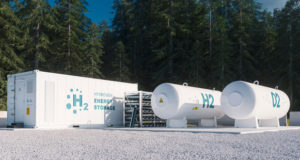The decision to phase out fossil fuels has already been taken. The intention behind Germany’s Coal-Fired Power Generation Termination Act (KVBG) is to resolve a social conflict, while also guaranteeing planning reliability for everyone involved. However, the legislation is not catering to this aspiration in full. In particular operators of young, modern coal-fired power stations are currently uncertain as to whether it will be possible to avoid the kind of massive losses some are currently predicting.
Power generation from coal has become a stopgap, and coal-fired power stations are still not being adequately compensated for this. Indeed, some are not receiving any compensation at all. Even the most recent improvements to the legislation have not really changed anything in this regard. Young coal-fired power stations are not protected. Particular emphasis is therefore being placed on the evaluation included in the KVBG.
Increased use of renewable energy sources requires flanking by secured power station capacity. This includes power generation during periods when renewable sources are not delivering their full capacity, e. g., due to a lack of wind or sunshine. Young, modern coal-fired power stations are already available today. Yet it remains uncertain whether the market will actually deliver the necessary increase in new gas-fired power station capacity and companies can continue to rely on their investment being protected.
Although many members of the Coal Importers Association (VDKi), Berlin/Germany, are clearly not in favour of the switchover from coal-fired power stations to other fuels, the membership does generally understand that power stations, in particular municipal power stations with combined heat and power (CHP), need to be switched over to natural gas. However, solid biomass must also be given a fair chance within the scope of a funding programme for greenhouse gas neutral generation and use of heat. After all, coal-fired power station locations with a suitable port are predestined for this.
The VDKi is relying on an unprejudiced evaluation of the KVBG which also incorporates young coal-fired power stations to accompany the further expansion of renewable energy sources.
(VDKi/Si.)

